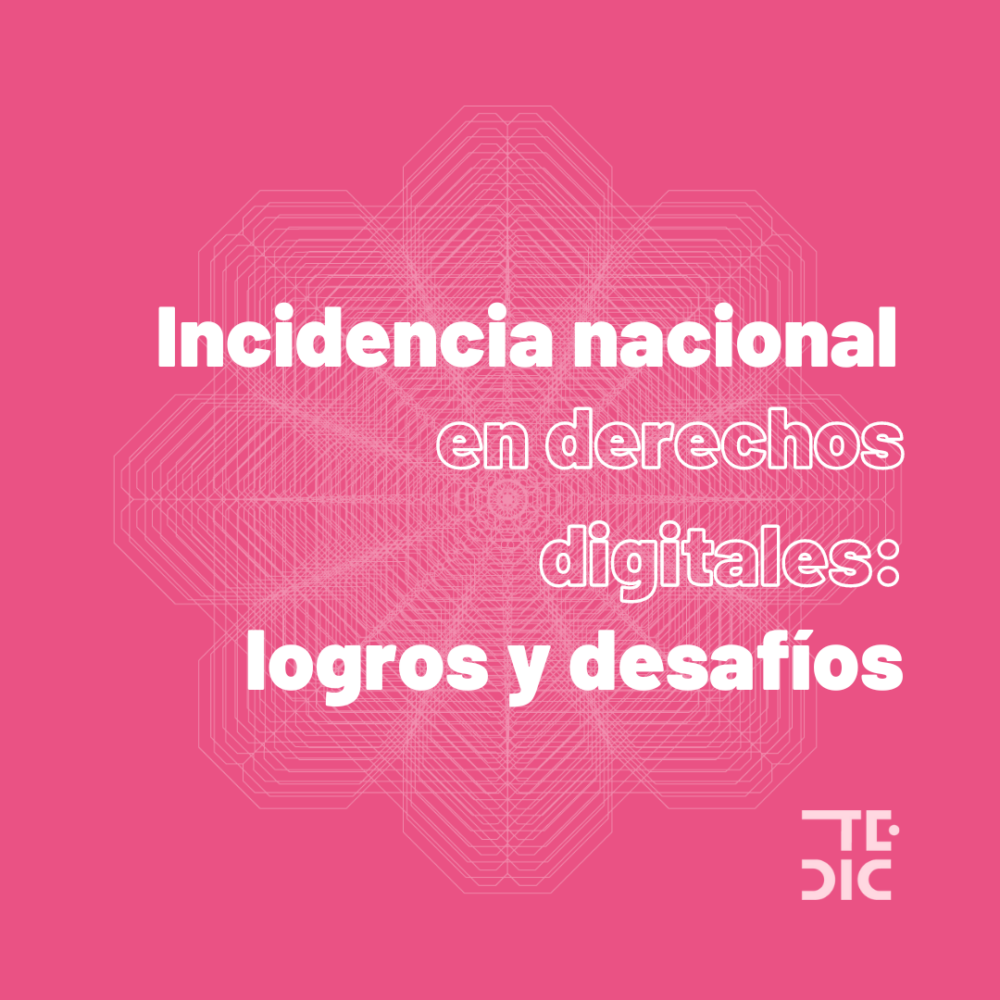
From January to April 2025, TEDIC continued to strengthen its national advocacy efforts to promote a free, open, and human rights-based Internet. In this blog, we share the main actions we carried out during this period, working in coordination with state institutions, media outlets, members of Congress, and judicial authorities to advance our proposals, generate public debate, and demand respect for our rights in digital environments.
A national cybersecurity strategy with a human rights approach
In February, we met with members of the Ministry of Information and Communication Technologies (MITIC) to reiterate our observations on the draft National Cybersecurity Strategy. TEDIC has long stressed the importance of incorporating human rights principles into public policy, such as personal data protection, institutional accountability, and citizen participation.
During the meeting, MITIC informed us that the draft is currently under review based on the feedback received. This process was key to positioning our vision for cybersecurity governance in Paraguay, strengthening multisectoral dialogue, and sharing our recommendations with allied organizations and public sector actors.
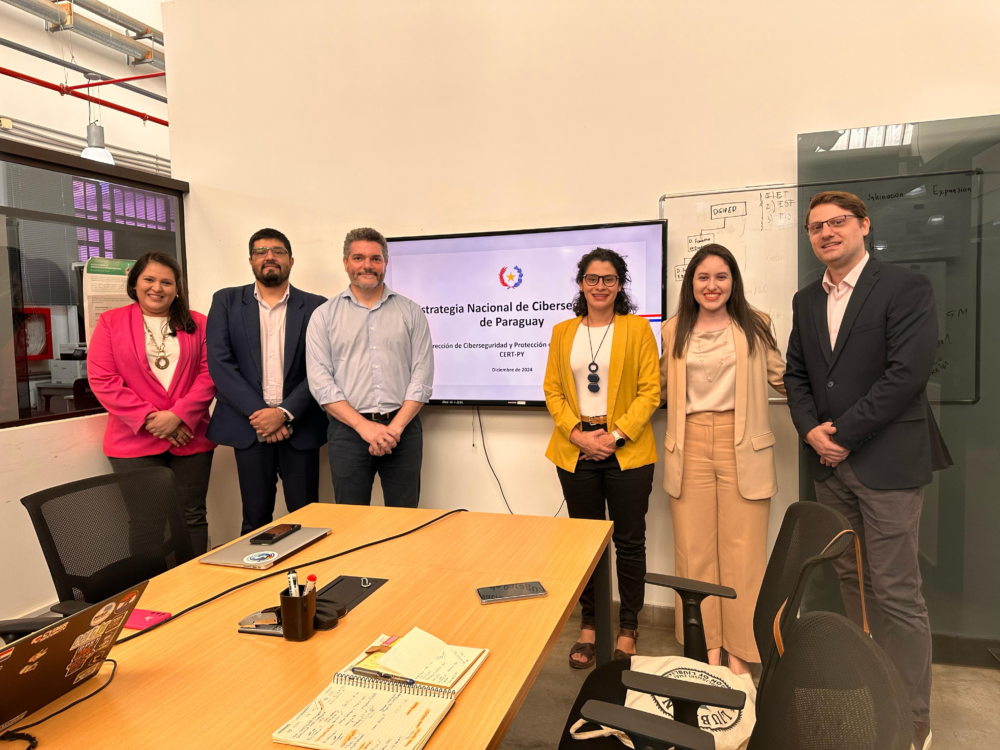
Personal Data Protection Law: an urgent and overdue need
During the first quarter of the year, TEDIC intensified its advocacy efforts in the National Congress, as part of the Personal Data Coalition, to push forward the long-awaited Personal Data Protection Law. Through meetings with members of the Science and Technology Commission of the Chamber of Deputies, we sought to ensure that the bill is reviewed article by article and not delayed once again.
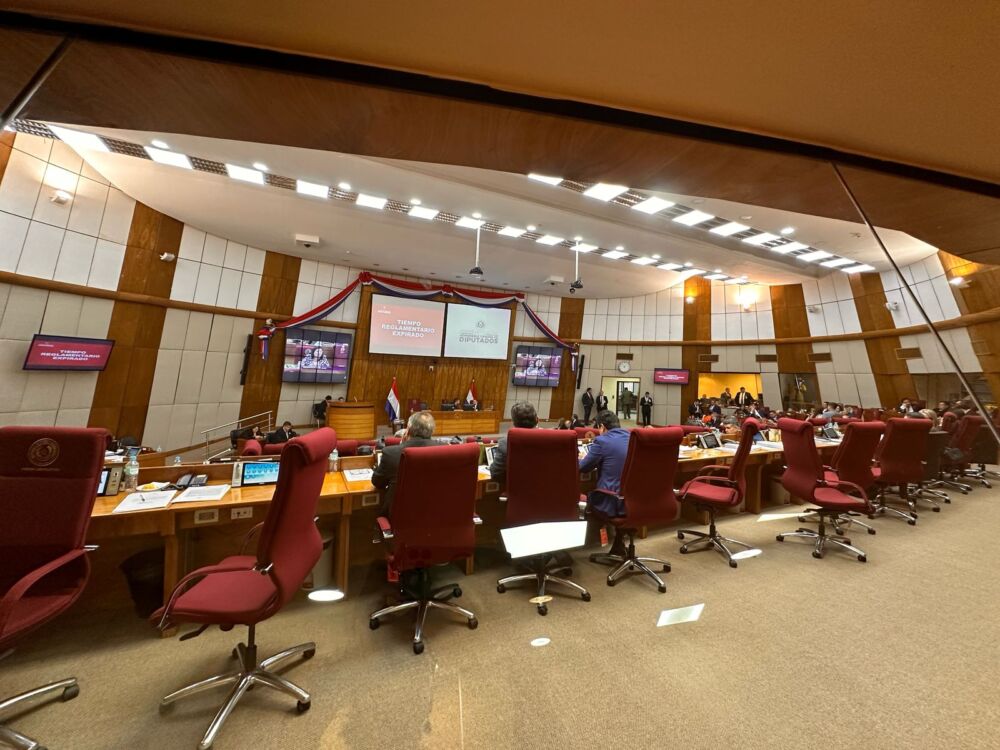
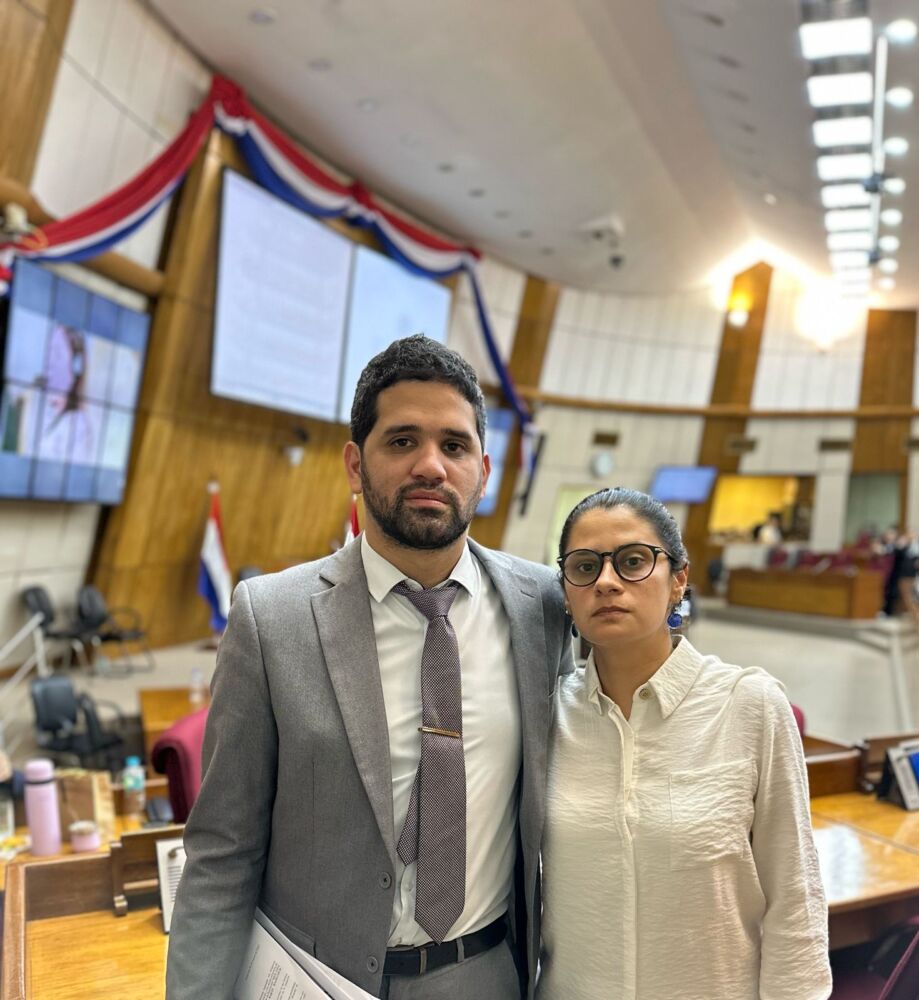
As a result of this coordinated effort, the bill appeared on the legislative agenda twice: first on March 4, during the opening session of the legislative year, which was canceled due to a lack of quorum; and second on April 1, when the debate was finally reopened. In that session, it was announced that a detailed discussion of the bill would resume within 15 days—opening a new window of opportunity to push for its final approval.
This comes at a particularly critical moment, marked by massive data leaks and systemic violations of privacy, making the absence of a comprehensive and up-to-date legal framework painfully evident. To raise public awareness, our executive director and co-founder, Maricarmen Sequera, was interviewed by Canal América, where she emphasized the importance of this law and the urgency of regulating the indiscriminate extraction of personal data in the country. TEDIC’s position remains clear: our data is not merchandise and should not be exposed due to state negligence. We will continue advocating—in Congress and civil society—for a robust law that guarantees our digital rights.
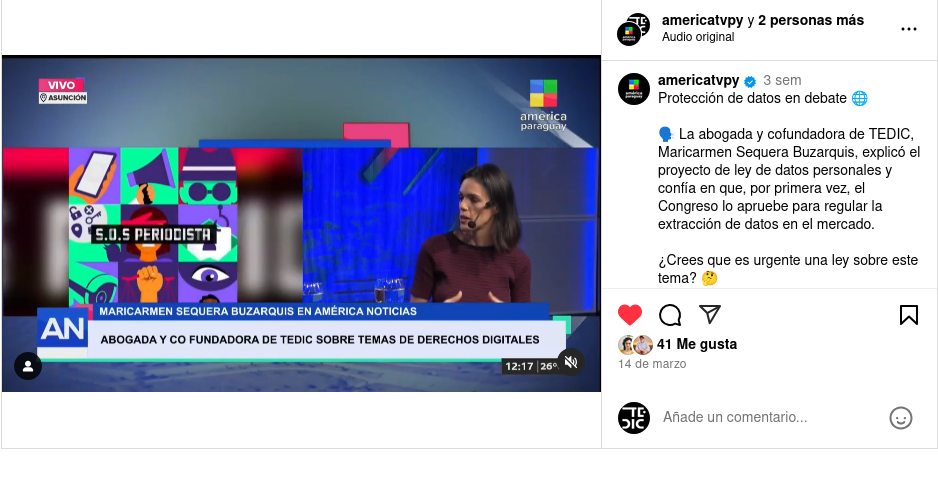
Who has your back? Evidence-based advocacy
This quarter, we also launched a strategic distribution of the 4th edition of our report “Who has your back?”, which evaluates transparency and privacy practices among Internet service providers in Paraguay. The report was sent to the legal departments of Tigo, Vox, Personal, Copaco, and Claro, as well as to public authorities from:
- MITIC: Gustavo Villate (Minister), Klaus Pistilli (Vice Minister of Technology), Alejandra Duarte (Vice Ministry of Communication), Jorge Levera and Luz Vera (General Directorate of Cybersecurity)
- CONACOM: Pablo Ramírez, Rolando Díaz, and Jesús Silveira
- SEDECO: Gustavo Benítez, Fabiola Roig, and Rodrigo Recalde
These distributions are part of our strategy to directly influence policies and practices around data protection and privacy, through an evidence-based and collaborative approach.
193 copies, 17 departments, and one urgent issue: misuse of Law 5777/16
With the support of Christian Chena, in April we began the physical distribution of our investigation into violence and the misuse of Law 5777/16 to courts of peace across the country. This material aims to equip judges with tools to recognize when this law is being used as a means of censorship or persecution.
A total of 193 copies will be distributed, prioritizing areas with the highest number of gender-based violence reports in each department. Thanks to support from the Gender Secretariat of the Judiciary, we were able to access updated data on the number of complaints and the location of courts with the highest workloads.
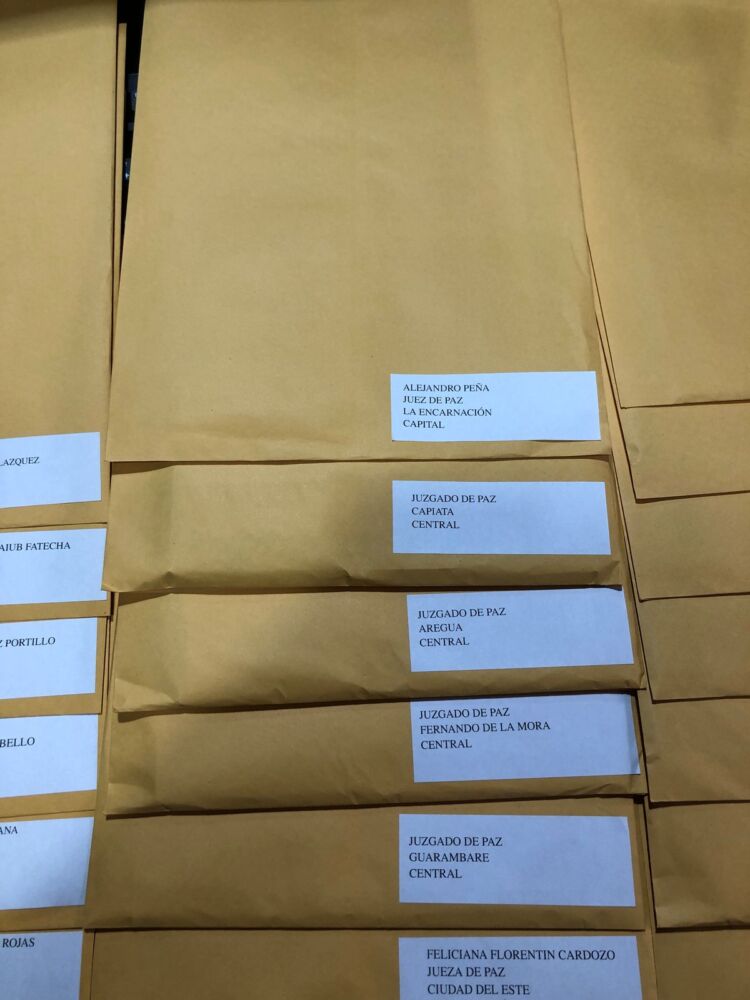
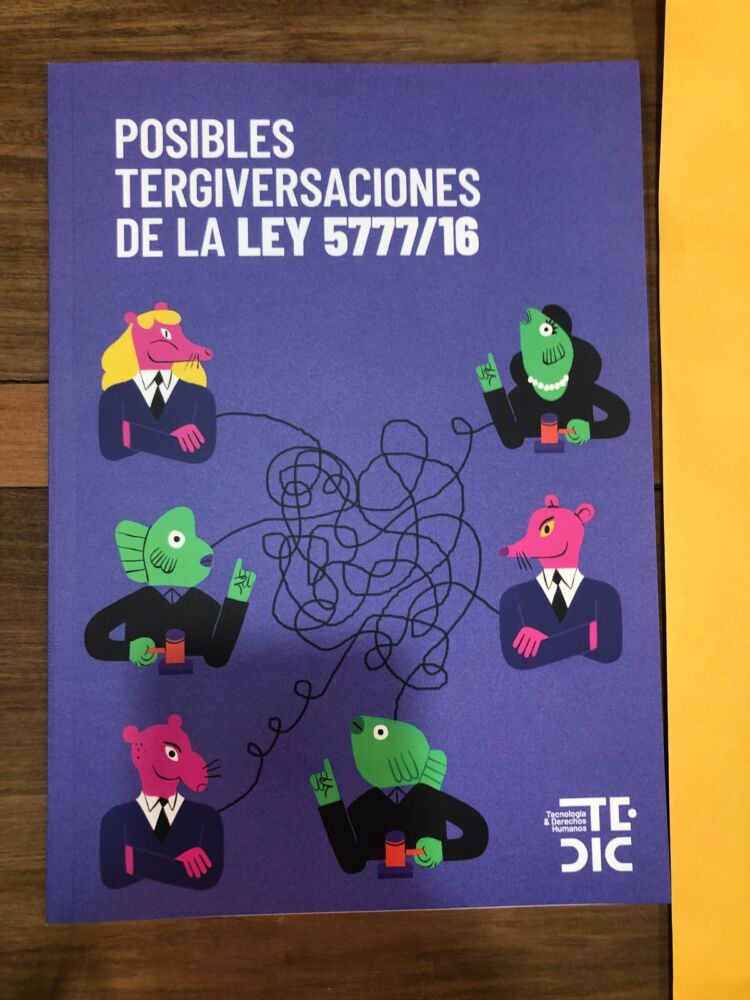

For example, according to conversations with the Gender Secretariat, the Central Department has recorded over 12,000 complaints and has only 18 courts of peace, so we will send 2–3 copies to each court to ensure the material also reaches support staff. Additional copies are being delivered to the Gender Secretariat and members of the Supreme Court, aiming to expand the reach and impact of our research.
TEDIC in the debate on institutional innovation and digitalization
On April 2, TEDIC participated in the workshop on innovation and institutional capacity organized by the Ministry of Economy and Finance and UNDP, as part of the formulation of the National Development Plan – Paraguay 2050. Maricarmen Sequera joined as a panelist, offering a critical and forward-looking perspective grounded in digital rights.

The discussion focused on how to strengthen public administration through digital transformation, while ensuring inclusion, transparency, and citizen participation. TEDIC contributed its experience in technology governance, strategic use of data, and the defense of privacy as key elements of any state modernization strategy.
This positioning was reinforced on April 9, during Maricarmen Sequera’s participation in the international panel “The Global Utopia: Shaping the Future with Artificial Intelligence for the Global Common Good,” organized by Cabinet as part of the Tomás Moro inter-university series. The event brought together experts from around the world to discuss the role of artificial intelligence in building fairer, more equitable, and sustainable futures, focusing on ethics, education, politics, and human rights. TEDIC remains committed to promoting spaces for advocacy that center people, human rights, and the active involvement of civil society in shaping digital public policies.
Continuing to blaze trails
This first quarter of 2025 reaffirms our commitment to a digital rights agenda built from the Global South—grounded in evidence, dialogue, and participation. We thank everyone—individuals, organizations, and institutions—who continue to support our work.
📬 Follow us on social media to stay updated on our upcoming activities and research.


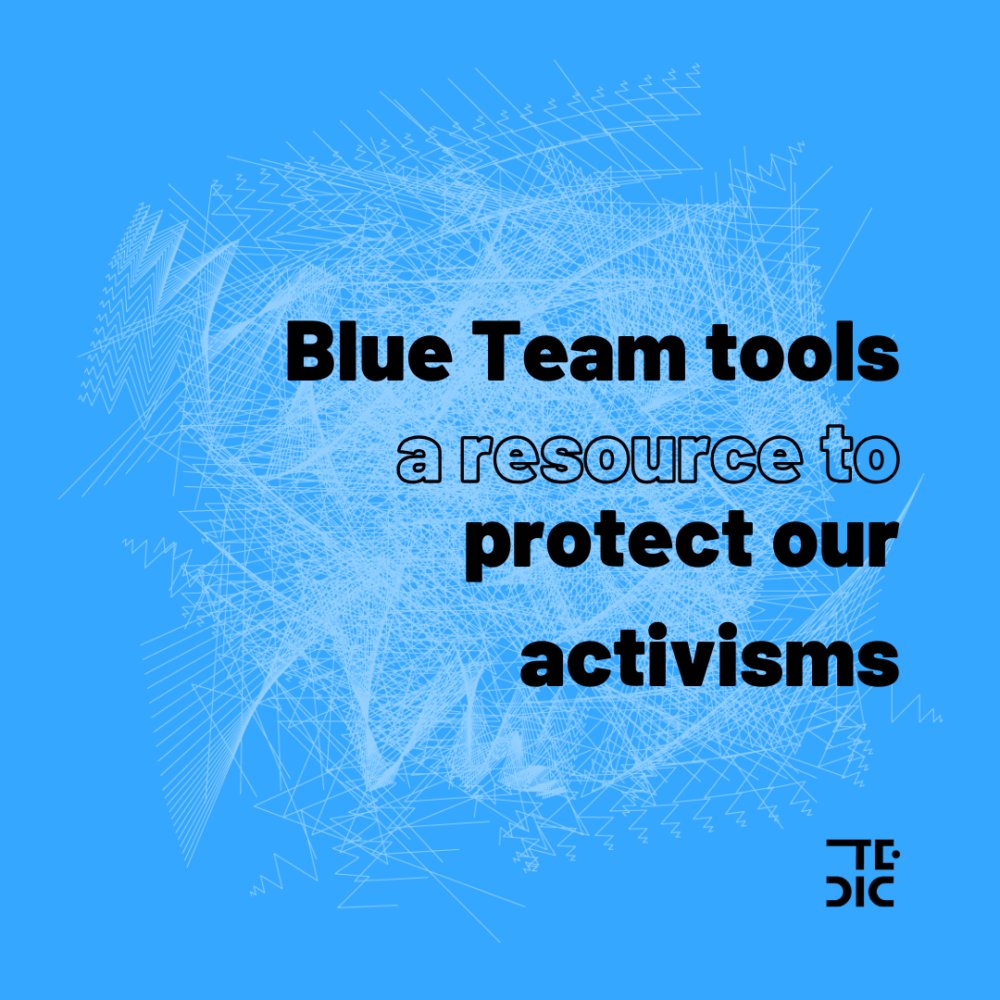 Blue Team Tools: A Resource to Protect Our Activisms
Blue Team Tools: A Resource to Protect Our Activisms  [Research] Technology-facilitated gender-based violence against women politicians in Paraguay
[Research] Technology-facilitated gender-based violence against women politicians in Paraguay